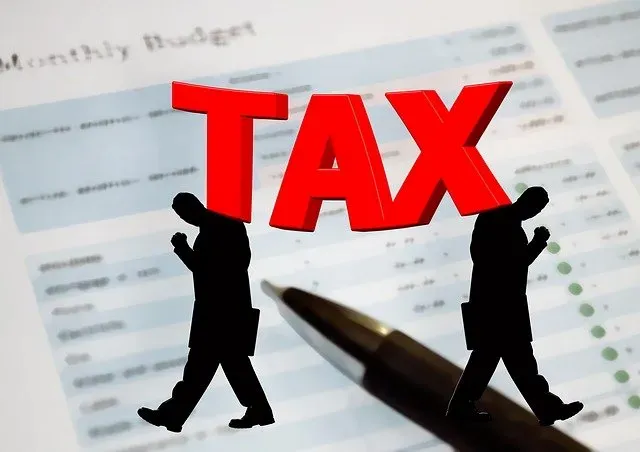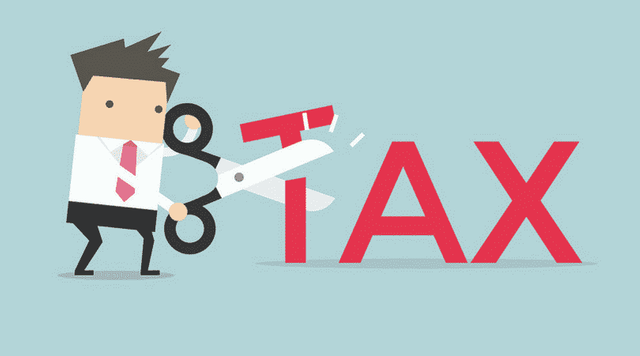Here Are Top 8 Simple Ways for Salaried Individuals in India to Save Tax
Here Are Top 8 Simple Ways for Salaried Individuals in India to Save Tax

Regardless of whether this is your first job or you are an established expert, a portion of your compensation may be withheld as income tax. Furthermore, the tax is charged not just on your basic wage, but also on any special allowances that appear clearly on your paycheck.
Individuals are looking for methods to save money on their taxes. Nobody wants to pass up opportunities to save money on taxes. Different folks choose different approaches. Often they simply adhere to the procedures they are familiar with, and as a result, they miss out on more effective ways of saving tax.
If you’re wondering how to save income tax in India, keep reading to learn 8 tax-saving tips for business owners and salaried staff.
Deductions under Section 80C, Section 80CCC and Section 80CCD
These three areas allow Indian citizens to save money on their taxes. People who have invested their money in the items described in Sections 80C, 80CCC, and 80CCD can claim specific deductions. PPF Accounts, Pension Plans, Life Insurance Policies, NSC (National Savings Certificate, 5 Year Tax Saving Fixed Deposit, and so on are some of the common vehicles in which individuals invest. Citizens can claim a maximum deduction of Rs.150,000 under one or more sections or all three sections combined. Individuals who invest in the National Pension Scheme are eligible for an extra deduction of Rs.50,000 under Section 80CCD.
Get a Health Insurance Policy
With soaring healthcare costs in India, as well as poor health quality due to a variety of issues, health insurance has become increasingly important. In times of failing health, such insurance policies alleviate financial hardship on individuals and their families.
The government provides tax breaks to encourage people to purchase medical insurance policies, which allow them to receive high-quality care at prestigious medical facilities for little or no extra cost.
Individuals can claim tax deductions under section 80D for the portion of their annual taxable income spent on premium payments. Depending on the age of the policyholder, different sums are deducted from such income tax computations.
Park your Money in Government Schemes
Several government-mandated plans offer significant returns on total investments as well as tax breaks. Individuals can claim tax exemptions on a total yearly income of up to 1.5 lakh spent on such investments under Section 80C of the Income Tax Act.
Tax breaks are available by investing in the following tools:
Senior Citizen Savings Scheme (SCSS)
Sukanya Samriddhi Yojana (SSY)
National Pension Scheme (NPS)
Public Provident Fund (PPF)
Opt for Life Insurance Plans
Tax breaks are available on both premium payments and the amount disbursed at maturity under life insurance contracts. Section 80C of the Income Tax Act provides for premium payments, and Section 10(10D) provides for the sum promised received at maturity or early death of the insured, whichever occurs first.
Nonetheless, if the insurance is bought after 1st April 2012, tax benefits of up to 1.5 lakh paid on annual premiums can be claimed under Section 80C, provided it is less than 10% of the entire sum assured. Providing the insurance was purchased before April 1, 2012, claims under Section 80C may be made if the cumulative premium payments do not exceed 20% of the sum assured.
The sum assured on such life insurance policies is also exempt from any tax computations under Section 10(10D), provided it follows the requirements outlined above. Purchase or renewal of life insurance coverage, as well as annuity payments on such plans made through monthly salary, are also eligible for tax exemptions of up to 1.5 lakh under Section 80CCC. Only certain pension funds under section 23AAB are eligible for exemptions of up to 1.5 lakh under section 80CCD(1)
Undertake Investments
Investments in the capital market and government-mandated plans can result in wealth building through better returns and tax benefits. You can discover how to lower income tax in India by investing in various instruments under Section 80C. If you are willing to accept the risk, you might choose stock market investment tools such as ELSS (Equity Linked Savings Scheme).
This tool has a three-year lock-in period, and total deposits are eligible for tax breaks of up to 1.5 lakh. Furthermore, if total capital gains are less than one lakh, no tax is due on profits realized. You can also choose to invest in 5-year fixed deposits to take advantage of such tax breaks without taking any risks. All investments up to 1.5 lakh can also be claimed for tax exemption under Section 80C.
Donate to Charity
Donations made in cash to designated organizations are eligible for a tax exemption of up to $2,000 under Section 80G of the Income Tax Act. Wire and bank transfers, on the other hand, are exempt from taxes entirely or partially. If you make a donation to an organization that promotes scientific research or rural development, you may be eligible for tax breaks under Section 80GGA. Cash gifts receive partial tax exemptions, whereas transfers made by check or draught receive the full tax exemption.
Citizens of India can save money on taxes by claiming deductions on the amount they spent on donations if they donate money for social or charitable reasons or make contributions to the National Relief Fund. Section 80G of the Income Tax Act allows them to claim such deductions. The Ministry of Finance lists the organizations to which taxpayers can donate, and whether or not deductions are authorized depending on the reason for which the money was donated. People cannot claim tax deductions for in-kind contributions. Taxpayers can claim deductions of up to Rs.10,000 for cash donations; for amounts greater than Rs.10,000, taxpayers must donate using cheques.
Increase in retirement fund contribution
Citizens of India can save money on taxes by claiming deductions on the amount they spent on donations if they donate money for social or charitable reasons or make contributions to the National Relief Fund. Section 80G of the Income Tax Act allows them to claim such deductions. The Ministry of Finance lists the organizations to which taxpayers can donate, and whether or not deductions are authorized depending on the reason for which the money was donated. People cannot claim tax deductions for in-kind contributions. Taxpayers can claim deductions of up to Rs.10,000 for cash donations; for amounts greater than Rs.10,000, taxpayers must donate using cheques.
Few other Tax Saving options in India
All of the ways listed above will provide a comprehensive understanding of how to save taxes in India. Apart from that, several additional considerations should be kept in mind when looking for tax-saving strategies, such as:
Section 80E allows you to defer paying taxes on the interest component of student loans. Such benefits, however, are only available for the first eight years of debt repayment.
Individuals’ medical treatment expenses are exempt from tax computations under Section 80DDB. Tax exemptions are available for medical costs totalling up to Rs. 40,000 for the treatment of selected disorders. Senior and super senior individuals are eligible for an additional benefit of one lakh rupees. However, treatment fees only cover neurological diseases, cancer, AIDS, renal failure, or haematological diseases.
If you host a dependent family member with a permanent disability, you can claim a tax exemption on all expenses incurred to support that person’s livelihood under Section 80DD. Similarly, disabled members of a HUF can claim tax exemption.
Individuals with 40% or greater disability can claim up to Rs. 75,000 in expenditures, while people with 80 per cent or higher disability can claim up to Rs. 1,25,000 in exempted amounts.
According to Section 2(i) of the Persons with Disabilities Act of 1955, proper documentation for medical treatment charges, as well as proof of disability, must be supplied.
If you are disabled, you may be eligible for tax exemptions under Section 80U.
All of these points will significantly reduce your overall taxable income for a given fiscal year, as well as provide you with a better understanding of the numerous government-mandated rules. To get the future proceeds, make sure you complete the income tax return form and Form 16 given by your company.

.jpg)
